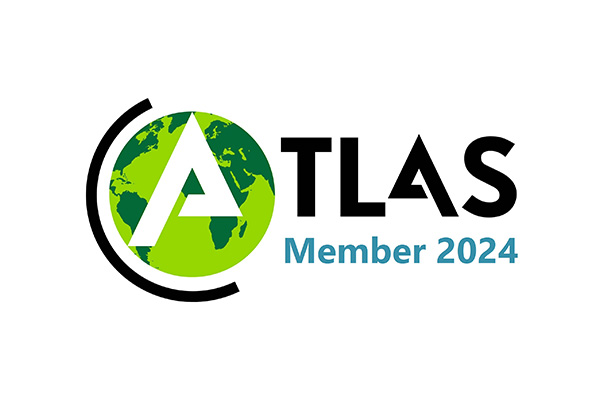Module Overview
The Visitor Economy does not operate in isolation from its external political, economic, social, technological and environmental context – but interacts with it. Numerous contemporary issues (e.g., political instability, global environmental crisis, human rights) shape the Visitor Economy and the Visitor Economy, in return, influences these issues.
This module seeks to analyse contemporary issues and their interrelationship with the Visitor Economy and to critically evaluate stakeholder responses to manage these issues with the aim of developing a comprehensive approach for improvement. Thus, the module focuses strongly on the supply side of the Visitor Economy.
The module provides students with the opportunity to develop deeper critical understanding of the interrelationship between contemporary issues and the Visitor Economy. By equipping students with critical understanding and critical management skills, the module ultimately seeks to develop students as reflective practitioners who have the capacity to transform the Visitor Economy for the better.
Module Overview
This module explores the role of creativity to give students the relevant academic and practical skills to enable the effective planning, organisation, and execution of a live project in tourism, events or/ and hospitality.
In the first term, students will engage with a series of interactive lectures and seminars, featuring insights from academics and external guest speakers who are industry leaders. The focus will be on understanding the foundational theories and concepts that underpin creativity in these sectors. The module will have a close collaboration with two university key cultural assets - Lincoln Arts Centre (LAC) and Barbican Creative Hub.
In the second term, students will apply their learning through live projects. They will work closely with industry partners to gain hands-on experience in their selected areas. This practical approach will allow students to develop and implement creative solutions to real-world challenges.
Module Overview
This module critically examines and integrates theoretical perspectives of the experiences within the context of global tourism, hospitality, and events management from demand positions. It offers learners the prospect of developing and advancing skills and techniques essential to meet contemporary global perspectives. The module facilitates a comprehensive understanding of consumer experiences, encompassing their foundational underpinnings, design, and effective management.
Module Overview
The Independent Project (Pathways) module enables you to undertake a substantive project in the context of your chosen degree specialism, and within the Lincoln International Business School’s commitment to sustainable and responsible management practice. The aim of the module is to clearly illustrate your ability to synthesise the different business domains and management perspectives studied during your course and apply them through an independent project. You can engage with contemporary business and research themes as you explore innovative and creative ways to complete their chosen pathway.
Module Overview
Inner Development and Global Mindset aims at crafting and sharing a strong narrative with student learners by fostering critical thinking that focuses on the significance and impact of personal inner development for sustainable outer change. The module is mapped on the Inner Development Goals (IDGs) framework of transformative skills for sustainable development. The IDG initiative started in Sweden as an urgent need to address the lack of progress in addressing UN Sustainable Development Goals (SDGs).
The module is delivered using a group learning approach based on the Finnish Tiimiakatemia model. Students are team coached for the duration of the module and receive mentoring/coaching from a range of business and academic change-makers.
For many this model of self-determined learning presents a distinct challenge as it encourages a departure from traditional pedagogic delivery.
Module Overview
“People, Places and Communities” module aims at developing an understanding of the relationships between human behaviour, improved community wellbeing and the physical and social environment. Tourism destinations will be examined from a management perspective, focusing on understanding how a place becomes a destination and addressing topics such as policy, development, governance, stakeholder relationships, strategy, community wellbeing, future of destinations. A wide variety of issues will be explored with an emphasis on how to develop, manage and make places and communities better for those within them and outside. The weekly topics will be considering the Sustainable Development Goals (SDGs) challenges and opportunities.
Module Overview
This module prepares you to undertake a substantial independent project. It introduces you to the core principles of research design and methods you are likely to encounter during independent study. The module seeks to develop your competency and confidence in research methodology to a Master's level.
Module Overview
This module aims to introduce students to a range of non-traditional business models and to challenge established expectations and norms about business ethics, motivations, value-systems and practices. The module presents the notion that enterprises can operate due to motives other than profit-maximisation and that Social Purpose Organisations can exist to fulfil social functions using business models to create an alternative basis for sustainability and development. Students are challenged to think critically about these forms of organisation and their impact on societies (positive and negative). Students are also challenged to consider how issues such as performance management can translate into the operations of community enterprises.
Module Overview
This module provides the opportunity to explore how the increasing pressures and opportunities created by new media formats and electronic communication tools are shaping marketing strategy. The module covers themes such as social media marketing, mobile marketing, data analytics, and digital marketing campaigns.







